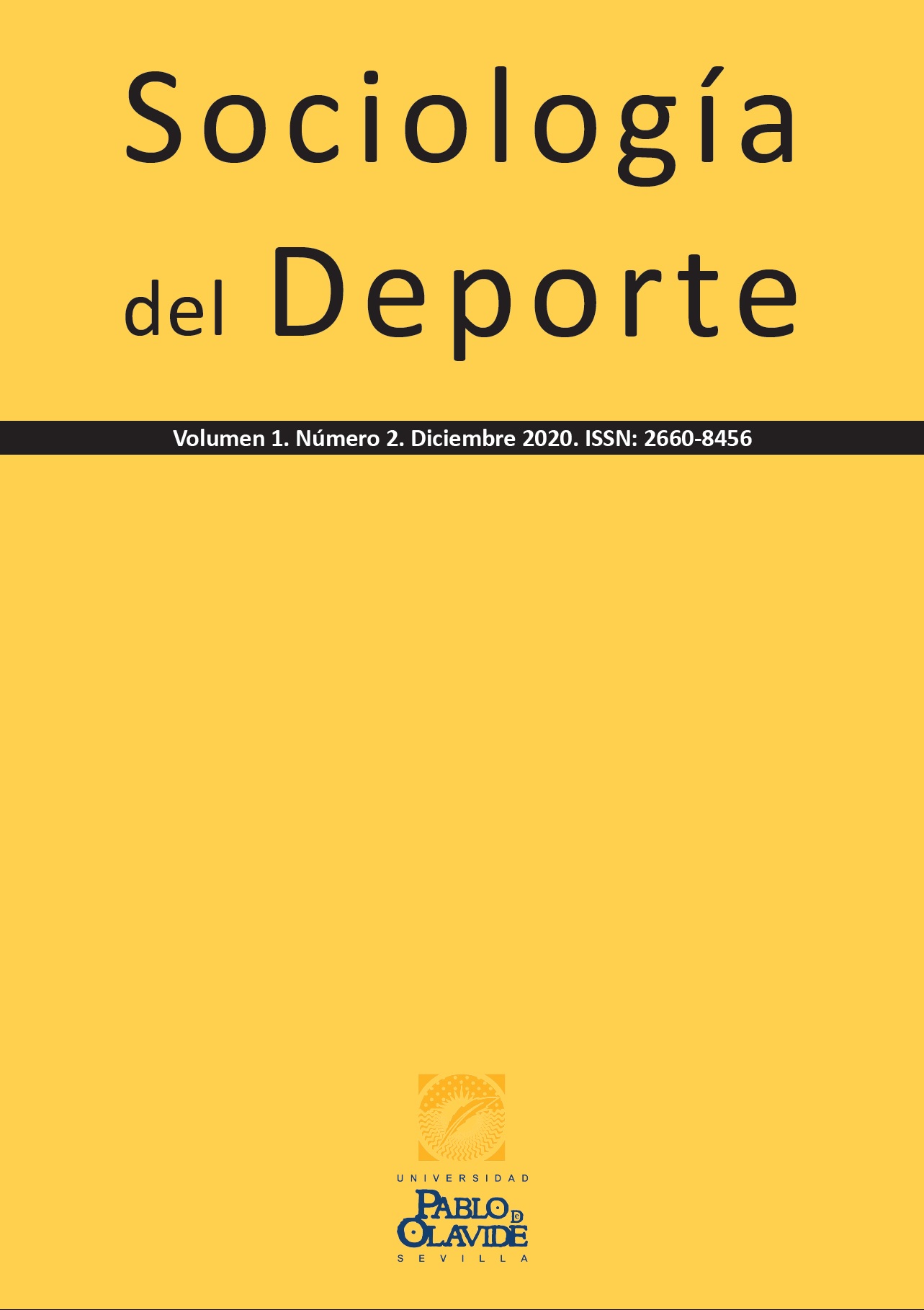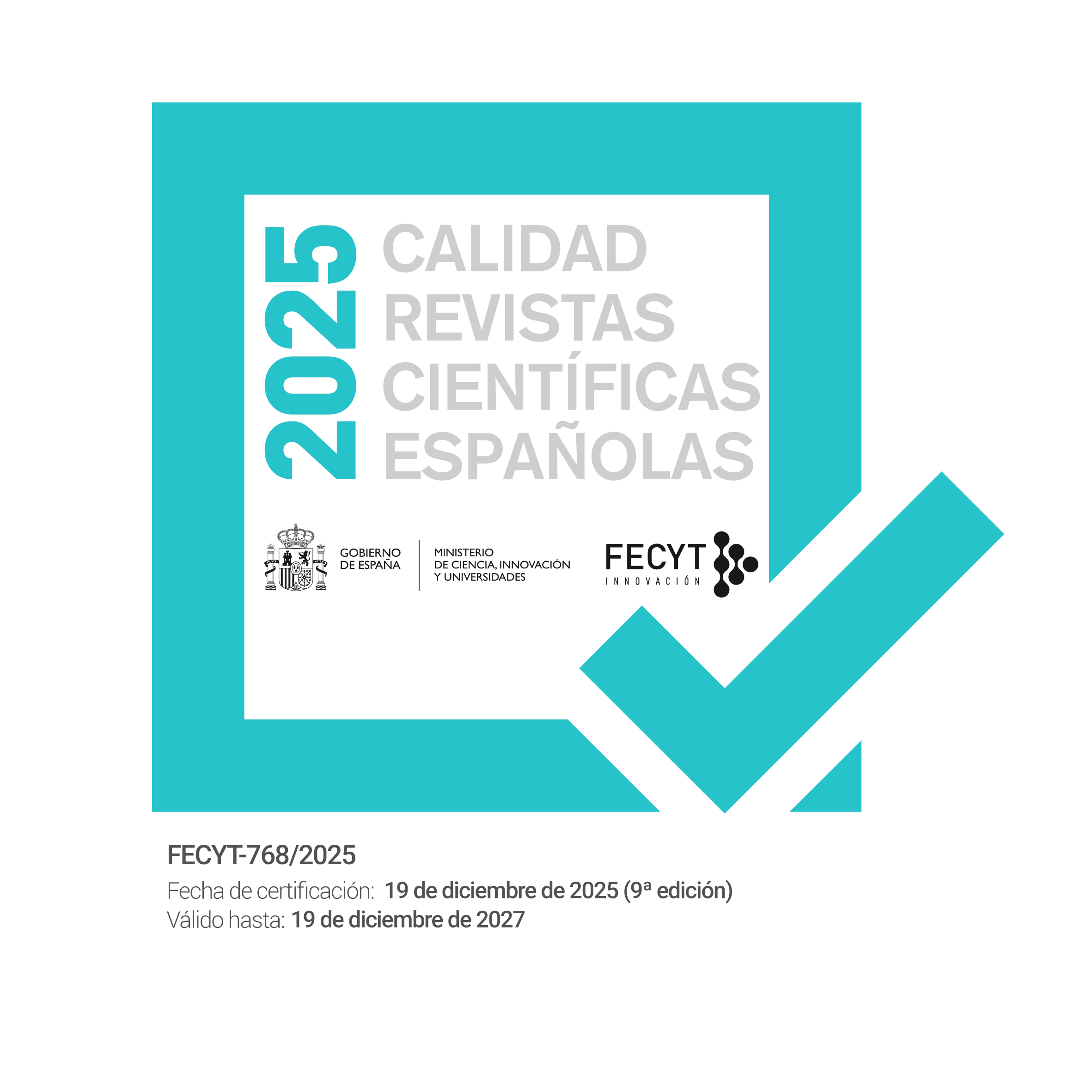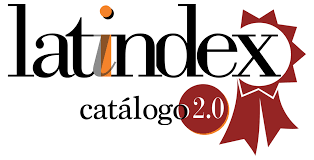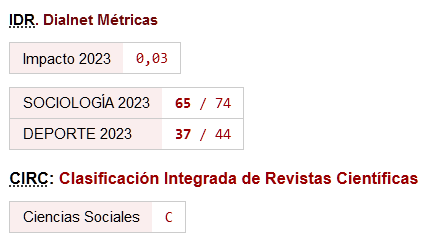Artes marciales bajo el bloqueo de COVID-19: la pragmática de la pedagogía creativa
DOI:
https://doi.org/10.46661/socioldeporte.5242Palabras clave:
Artes marciales, Pedagogía, Covid-19, Comunidades, NetnografíaResumen
Las organizaciones de artes marciales combinan cada vez más actividades en la vida real y actividades en línea para cultivar cualidades, habilidades y virtudes específicas. Los estudiantes e instructores usan blogs, foros de chat, videos y podcasts para complementar su cultivo propio y compartido, algo que se ha extendido con el cierre del COVID-19 en Gran Bretaña. Las escuelas de artes marciales han cerrado temporal o incluso definitivamente debido a las medidas gubernamentales para controlar las interacciones físicas de las personas a través de medidas de distanciamiento social. Este artículo se basa en estudios de caso de dos escuelas de artes marciales británicas (Taijiquan y Esgrima Histórica) para examinar cómo se han adaptado al encierro. Mediante estos estudios de caso, se narran los desarrollos de cómo los maestros y sus comunidades locales han dado soluciones creativas durante este momento de crisis internacional, desde sesiones de capacitación en vivo dirigidas por instructores y conferencias hasta foros de chat dirigidos por estudiantes y sesiones de “noches de cine” para una sociabilidad continua y construcción de identidad. Para ello, este artículo hace uso de las siguientes teorías sobre las artes marciales: Cultivo compartido (Jennings, 2010) y Creación marcial (Jennings, 2019) para explicar cómo los artistas marciales continúan desarrollándose a través de esfuerzos creativos en línea y a través de sus cuerpos en movimiento dentro de los límites de sus hogares. Finalmente, sostengo que este cultivo creativo de artes marciales durante la pandemia de COVID-19 podría extenderse a una cultura física más amplia.
Descargas
Citas
Andreucci, Carlos. 2020. Gyms and martial arts school after COVID-19: When to come back to train? Advanced in Physical Education, 10(2), 114-120 DOI: 10.4236/ape.2020.102011
Ashbridge, Thomas. 2015. The greatest knight: The remarkable life of William Marshall, the power behind five English thrones. London: Simon & Schuster.
Back, Les. 2007. The art of listening. London: Bloomsbury.
Bates, Charlotte. 2019. Vital bodies: Living with illness. Bristol: Policy Press.
Billig, Michael. 2016. Learning to write badly: How to succeed in the social sciences. Cambridge: Cambridge University Press.
Bowman, Paul. 2017. “The definition of martial arts studies.” Martial Arts Studies, 3: 6-23.
Brown, David, Jennings, George and Sparkes, Andrew C. 2014. “Taijiquan the ‘Taiji World’ way: Towards a cosmopolitan vision of ecology.” Societies, 4 (3): 380-398.
Brown, David and Jennings, George. 2013. “In search of the martial habitus: Identifying dispositional schemes in Wing Chun and Taijiquan.” In Fighting Scholars: Habitus and ethnographies of martial arts and combat sports edited by Raúl García Sánchez and Dale Spencer (Eds.), 33-48. London: Anthem Press.
Di Paolo, Ezequiel, Cuffari, Elena and De Jaegher, Hanne. 2018. Linguistic bodies: The continuity between life and language. Cambridge, MA: The MIT Press.
Fiore di Liberi (c.1409) Flowers of battle. New York: The Getty Manuscript.
Fullager, Simone and Pavadis, Adele (2020). “Thinking through the disruptive effects and affects of coronavirus through feminist New Materialism.” Leisure Studies, DOI: 10.1080/01490400.2020.1773996
González-Calvo, Gustavo. 2020. “Narrative reflections on masculinity and fatherhood during Covid-19 confinement in Spain.” Societies, 10 (2): 45 https://doi.org/10.3390/soc10020045
Herring, Lorraine. 2007. Writing begins with the breath: Embodying your authentic voice. Boston: Shambhala.
Jaquet, Daniel and Deluz, Vincent. 2018. Moving in late medieval harness: Exploration of a lost embodied knowledge. Journal of Embodied Research, 1, 2 (20:49). DOI: http://doi.org/10.16995/jer.7
Jaquet, Daniel, Tuaillon, Audrey and Eleftherios, Iason-Eleftherios. 2020. Historical European Martial Arts: An International Overview. Chungju-si: ICM.
Jennings, George. 2019. “Bruce Lee and the invention of Jeet Kune Do: The Theory of Martial Creation.” Martial Arts Studies, 8: 60-72. doi.org/10.18573/mas.84
Jennings, George. 2010. Fighters, thinkers and shared cultivation: Experiencing transmission through the long-term practise of traditionalist Chinese martial arts. Unpublished doctoral thesis, University of Exeter.
Jennings, George, Dodd, Simon and Brown, David. 2020. “Cultivation through Asian form-based martial arts pedagogy.” In East Asian Pedagogies: Education and formation and transformation across cultures and borders, edited by David Lewin and Karsten Kenklies, 63-77. New York: Springer.
Johnes, Martin. 2019. Wales: England’s colony? Cardigan: Parthian.
Körner, Sven and Staller, Mario. In press. “Coaching self-defense under COVID-19: Challenges and solutions in the police and civilian domain.”
Malcolm, Dominic and Velija, Phillipa. 2020. “COVID-19, exercise and bodily self-control.” Sociología del Deporte, 1 (1): 29-34.
Martial Arts Studies podcast. Available at: https://www.youtube.com/playlist?list=PLywv_DP-EcGaB2h_dPop3ozM8r2MzjSWX
Last accessed 31/07/2020
Mills, Charles W. 1959. The sociological imagination. New York: Oxford University Press.
Moscoso, David, Sánchez, Raúl, Piedra, Joaquín and Villanova, Ana. 2020. “Pensar el deporte en tiempos de la COVID-19: El papel fundamental de la sociología.” Sociología del Deporte, 1 (10): 9-11.
Morosco-Sánchez, David. 2020. “El context del deporte en España durante la crisis sanitaria de la COVID-19.” Sociología del Deporte, 1(1): 15-19.
Musashi, Miyamoto. 2002. The book of five rings (trans. W. Scott-Wilson). Tokyo: Kodansha International.
Parnell, Daniel, Widdop, Paul, Bond, Alex and Wilson, Rob. 2020. “COVID-19, networks and sport.” Managing Sport and Leisure, DOI: 10.1080/23750472.2020.1750100
Pedrini, Lorenzo, Brown, David and Aimini, Gabriel (2019). “Leading the left: Sociability and the micropolitics of social reproduction in grassroots boxe popolare coaching.” Sport, Education & Society, DOI: 10.1080/13573322.2019.1672147
Physical Activity Research Podcast. Available at: https://www.podbean.com/podcast-detail/pb-f7ugm-58cd01/Physical%20Activity%20Researcher Last accessed 31/07/2020
Piedra, Joaquín. 2020. “Redes sociales en tiempos del COVID-19: el caso de la actividad física.” Sociología del Deporte, 1 (1): 41-43.
Plows, Alexandra (ed.) 2018. Messy ethnographies in action. Vernon Press.
Shilling, Chris. 2017. “Body pedagogics: Embodiment, cognition and cultural transmission.” Sociology, 51 (6): 1205-1221.
Shilling, Chris. 2008. Changing bodies: Habit, crisis and creativity. London: Sage.
Sparkes, Andrew C. 2002. Telling tales in sport and physical activity: A qualitative journey. Champaign, IL: Human Kinetics.
Spencer, Dale. 2014. “From many masters to many students: YouTube, Brazilian Jiu Jitsu and communities of practice.” JOMEC Journal (online).
Yuasa, Yasuo. 1987. The body: Towards an Eastern mind-body theory. New York: SUNY.

Descargas
Publicado
Cómo citar
Número
Sección
Licencia
Derechos de autor 2020 George Jennings

Esta obra está bajo una licencia internacional Creative Commons Atribución-NoComercial-CompartirIgual 4.0.









